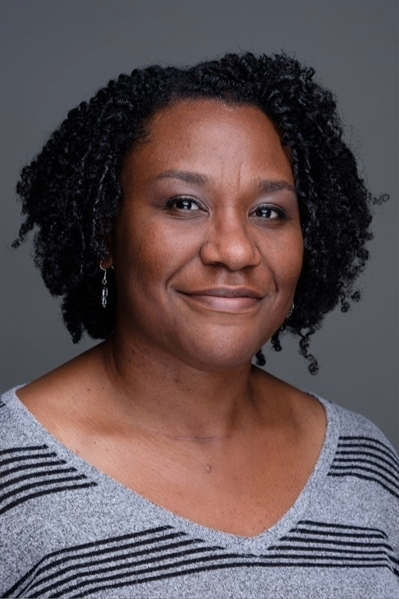
Heather Antecol
Vice President for Academic Affairs and Dean of the Faculty
James G. Boswell Professor of Economics
- Academic Advising
- Academic Affairs Committee of the Board of Trustees
- Academic Deans Committee (ADC) of the Consortium
- Academic Standards Committee appeals
- Administration Committee
- Appointments, Promotion, and Tenure Committee (APT)
- APT Executive Committee
- Athletics Appointments
- Athletics Reappointment, Tenure and Promotion Committee
- Board of Trustees
- Budgets
- Committee Assignments
- Committee of Chairs
- Dean’s Cabinet
- Department Budgets
- Department External Reviews
- Diversity Committee
- Faculty Compensation
- Faculty contracts: tenure track and non-tenure track
- Junior Faculty Mentoring
- DNS Reappointment, Tenure and Promotion Committee
- Podlich Distinguished Fellows
- Post-Tenure Reviews
- President’s Executive Council
- Science Chair Search Committee
- Science Facility Faculty Committee Chair
- Science Program Planning
- Space Planning
- Staff Compensation in offices overseen by the DOF
- Student Information System
- Tenure Track Appointments
The Dean of the Faculty oversees the following offices:
- Athenaeum
- Center for Global Education
- Center for Writing & Public Discourse
- Faculty Support
- Forensics and Debate
- Kravis Lab for Social Impact
- Murty Sunak Quantitative and Computing Lab
- Office of Institutional Research
- Office of the Registrar
- Research Institutes

Albert L. Park
Bank of America Associate Professor of Pacific Basin Studies and Associate Dean of the Faculty for Research
- Academic Affairs Committee of the Board of Trustees
- Committee Assignments
- Coordination with Office of Institute Relations
- Coordination with Public Affairs and Communications
- Coordination with Sponsored Research Office
- Coordination with Stewardship Office
- Dean’s Cabinet
- Diversity Committee
- Faculty Awards Celebration
- Faculty Research Committee Chair (sabbatical leaves and research funding)
- Intercollegiate: 7C Faculty Mentoring and Collaborative Research Initiative
- Junior Faculty Mentoring
- Kravis Lab for Social Impact Oversight
- New Chair Orientation
- Open Academy Support
- Research Institutes, Labs, and Dreier Roundtable Oversight
- Research Integrity Officer
- Senior Advisory Council
- Student Research Funds Oversight
- Summer Research Program
- Writing Committee

Ellen Ketels
Associate Dean of the Faculty for the Curriculum
Associate Professor of Literature
- Academic Advising
- Academic Affairs Committee of the Board of Trustees
- Academic Standards Committee (ASC)
- ASC Hearing Committee Chair
- Admission and Financial Aid Committee
- Assessment Committee
- Committee Assignments
- Coordination with Information Technology Services (ITS)
- Curriculum Committee Chair and General Curriculum Oversight
- Dean’s Cabinet
- Diversity Committee
- Faculty-Student Academic Working Group
- Fellowships Advising Oversight
- Freshman Humanities Seminars Director
- Intercollegiate: 5C Center for Teaching and Learning; 7C Claremont Faculty Leadership Program; 7C Diversity Working Group; 7C Faculty Mentoring and Collaborative Research Initiative
- Junior Faculty Mentoring
- New Faculty Orientation
- Quantitative and Computing Lab Faculty Advisory Board
- Senior Advisory Council
- Student Affairs Committee of the Board of Trustees
- Student Orientation (Academic Aspects)

Erin Michelle Collins
Registrar and Assistant Vice President for Academic Affairs
- Academic Calendar and Course Schedule
- Academic Standards Committee
- Curriculum Committee
- Curricular Reform Projects
- Degree Audits and Certification for Graduation
- Enrollment Management and Planning Committee
- Global Education Committee
- Registrar's Office
- Senior Advisory Council
- Senior Thesis Requirement
- Student Information System
- Transfer Credits

- Academic Affairs Committee of the Board of Trustees
- Accreditation Liaison Officer (ALO)
- Admission and Financial Aid Committee
- Assessment Committee
- Claremont Colleges Institutional Research & Assessment Group
- Common Data Set (CDS), Fact Sheet, and Factbook
- Enrollment Management
- External Reviews
- Institutional Research Office
- IPEDS Keyholder
- Policy Library
- Senior Advisory Council
- Surveys and Survey Requests

- Civil Rights Policies and Complaints
- Diversity Committee
- Faculty Hiring Policies

Aithan Peterson
EXECUTIVE Director of Academic Affairs
(909) 621-8117
(909) 607-2507
[email protected]
Athenaeum North, Suite 225
- Academic Advising Assignments
- Academic Affairs Committee of the Board of Trustees
- Appointment, Promotion, and Tenure Committee (APT)
- APT Executive Committee
- Committee of Chairs
- DOF Website and Policy Library, including Faculty Handbook
- Emergency and Academic Continuity
- Faculty Office Assignments and Space Planning
- Faculty Searches, Faculty Contracts, Faculty Visa Materials, and New Faculty Hires
- Institute Directors and Board Chairs Meetings
- Joint Physical Education Reappointment and Promotion Committee
- Junior Faculty Annual Reviews
- Language Resident Support
- Post-Tenure Reviews
- Research Projects for DOF Office

Christine M. Costanza
Executive Director of Academic Administration
(909) 621-8117
(909) 607-2507
[email protected]
Athenaeum North, Suite 225F
- Academic Advising Assignment Support
- Academic Deans Committee
- Administration Committee
- Annual Reports and Faculty Research, Teaching, and Service Data
- Celebration of Faculty Awards
- Committee Assignment Support
- Committee on Academic Computing
- Computer Science/Data Science Committee
- Curriculum Committee
- DOF Email Communications
- DOF Initiatives and Projects
- Faculty Meetings
- Faculty Research Committee
- Guest Speaker and Teaching Assistant Funding Requests
- Joint Language Billing
- Language Resident and Visiting Scholar Support
- New Faculty and Department Chair Orientation
- New and Reappointed and Promoted Faculty Research Descriptions
- Podlich Fellows
- Research Projects for DOF Office
- Retirement Celebrations
- Writing Committee

Janice Heitkamp
Administrative Assistant to the Dean
(909) 621-8117
[email protected]
Athenaeum North, Suite 225
- Calendars of Dean of Faculty and Associate Deans of Faculty
- Budget Support
- Event organization
- General Office Support
